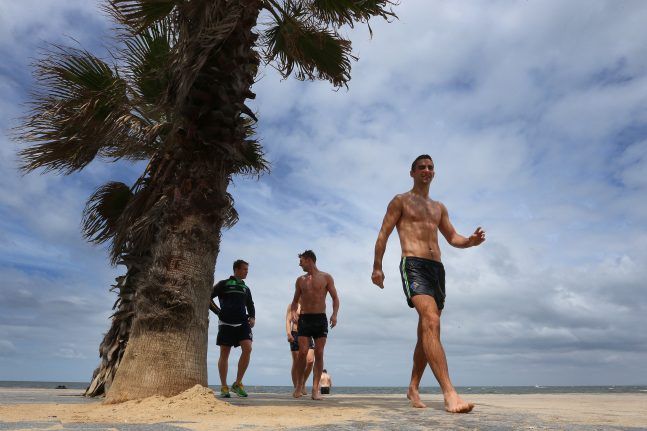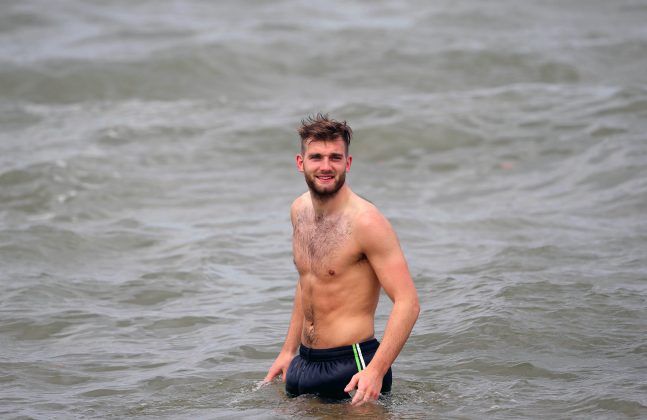

Share
27th April 2017
04:27pm BST

"I've done all of them. I went on training camps in the month of April when there was an emphasis on strength and conditioning and getting fitter and also playing football."
 On a typical camp, the breakdown was simple enough - but downright gruelling. Ó Sé revealed that Kerry would be doing three sessions a day with tactics talk at the end of it all.
8am to 9am
Running
On a typical camp, the breakdown was simple enough - but downright gruelling. Ó Sé revealed that Kerry would be doing three sessions a day with tactics talk at the end of it all.
8am to 9am
Running
"We started at eight in the morning and you'd have a running session until nine."9am Breakfast
"You'd have your breakfast and then go to bed."10am to 1pm Rest 1pm to 2.30pm Football session 2.30pm Lunch
"You'd have your lunch and then some fellas would go off to bed again."3pm Rest Evening Gym session Night time Tactics session
"It gives the manager a chance to get everyone together and go through tactics," the iconic defender said. "Let's be honest, we're amateurs - you train and then when teams have meetings and all of that, you can see the same fellas always trying to rush off straight away and get home as quickly as possible and that's only natural. "This gives a chance to iron things out. A manager can go through and explain to his players exactly what he wants of them, the football they're going to play, video analysis and all of that."
 Ó Sé also had some fascinating tales about the antics the like of Tomás Ó Sé and Paul Galvin would get up to on those trips. But it was all still honest work.
Ó Sé also had some fascinating tales about the antics the like of Tomás Ó Sé and Paul Galvin would get up to on those trips. But it was all still honest work.
"After the week or the five days we were out there, I can tell you we were well and truly wrecked after it but it definitely stood to us," he said. "As the years went on, there was no drinking. We were there to work."Listen to the full discussion on warm-weather camps below from 15:40.
Explore more on these topics: